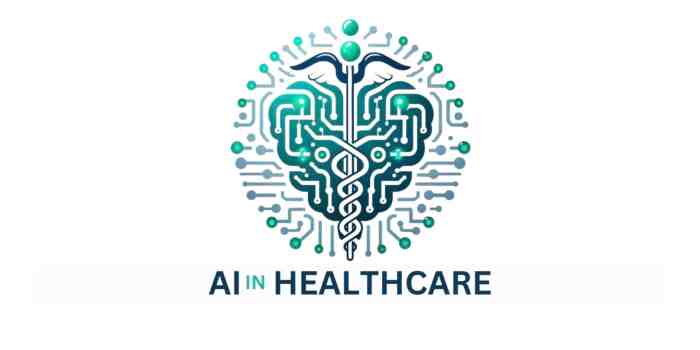
Healthcare alliance organizations play a pivotal role in the modern healthcare landscape, bringing together various stakeholders to improve patient care and community health. By fostering collaboration among healthcare providers, these alliances make a significant impact on the efficiency and effectiveness of health services.
From home health care to nutrition education, the multifaceted approach of these organizations not only enhances access to essential services but also drives innovations that benefit patients and communities alike. Their initiatives often lead to improved health outcomes and promote equitable healthcare access for diverse populations.
Overview of Healthcare Alliance Organizations
Healthcare alliance organizations are essential entities within the healthcare sector aimed at fostering collaboration among various healthcare providers. Their primary purpose is to enhance the quality, efficiency, and accessibility of healthcare services by pooling resources, sharing knowledge, and coordinating efforts across different organizations. In this collaborative environment, healthcare alliances play a vital role in addressing the complex challenges faced by the healthcare system today.Collaboration among healthcare providers is crucial for several reasons.
Firstly, it promotes a more integrated care model, allowing for a seamless patient experience. Secondly, these alliances can lead to cost savings and improved health outcomes by reducing duplication of services and leveraging best practices. Numerous successful healthcare alliances have showcased this impact, such as the Mayo Clinic Care Network, which connects providers across various regions to share expertise and improve patient care.
Home Health Care Services
Home health care organizations provide a range of essential services aimed at helping individuals receive care in the comfort of their homes. Key services include skilled nursing, physical therapy, occupational therapy, speech therapy, and personal care assistance. These services are particularly valuable for elderly patients or those with chronic conditions who prefer to age in place or require support post-hospitalization.Healthcare alliances significantly improve access to home health care by streamlining referrals and ensuring that patients receive timely and appropriate care.
For instance, alliances often develop standardized protocols that facilitate quicker service delivery, which is essential for maintaining patient health and satisfaction. Models like the Partnership for Patients initiative have demonstrated how alliances can enhance home health care services through collaboration with local hospitals and community organizations.
Health Blogs and Information Sharing
Healthcare alliances can effectively promote health blogs to foster community engagement and spread awareness about health issues. By collaborating with healthcare professionals and subject matter experts, alliances can develop authentic and informative content that resonates with their audience. This approach not only builds trust but also encourages readers to take proactive steps towards their health.Sharing health information through alliances offers numerous benefits, including increased reach and credibility.
Access to a diverse pool of knowledge allows for a more comprehensive understanding of health topics, which can empower communities to make informed decisions. To create engaging content for health blogs, alliances should focus on:
- Using relatable language and personal stories to connect with readers.
- Including visuals, such as infographics and videos, to enhance understanding.
- Encouraging guest contributions from healthcare professionals to diversify perspectives.
Promoting Healthy Food Choices
Healthcare alliances can play a pivotal role in promoting healthy eating habits within communities. By organizing initiatives that emphasize nutritious food options, these alliances can help raise awareness about the importance of diet in overall health. This includes partnering with local farms, grocery stores, and community organizations to enhance food access and availability.Through strategic partnerships, alliances can implement programs that encourage healthy food choices, such as community gardens, cooking classes, and nutrition workshops.
These initiatives not only improve food access but also provide valuable education on nutrition. The impact of nutrition education programs is profound, as they empower individuals to make healthier choices that contribute to better health outcomes.
Addressing Health Equity
Addressing health disparities is a fundamental mission of healthcare alliances. These organizations can implement various methods to promote health equity, such as establishing outreach programs tailored to underrepresented communities. By focusing on the unique needs of these populations, alliances can create initiatives that improve healthcare access and outcomes.Programs that support underrepresented communities, such as mobile health clinics and cultural competency training for providers, are effective examples of this commitment to health equity.
Additionally, alliances can create a framework for measuring health equity outcomes by collecting data on access to care, health conditions, and patient satisfaction. This data-driven approach helps in identifying gaps and addressing them effectively.
Health and Fitness Initiatives
Healthcare alliances present numerous opportunities to promote physical activity and fitness within communities. By organizing wellness programs and fitness challenges, alliances can encourage individuals to adopt healthier lifestyles. Successful fitness programs, such as the “Walk with a Doc” initiative, demonstrate how engaging community members in physical activities can lead to improved health outcomes.Partnerships with local fitness organizations, such as gyms and community centers, enhance these initiatives by providing resources and expertise.
Through collaborative efforts, healthcare alliances can create a supportive environment that fosters community wellness and encourages individuals to stay active.
Health Connectors in Community Engagement
Health connectors serve a vital role in facilitating access to healthcare services within communities. These individuals act as liaisons, helping patients navigate the complexities of the healthcare system and connecting them with the appropriate resources. Successful health connector programs integrated into alliances have shown remarkable improvements in patient engagement and care coordination.Training strategies for health connectors are essential to enhance their effectiveness.
Programs that focus on communication skills, cultural competence, and resource knowledge are vital for empowering connectors to better serve their communities. By investing in these training opportunities, healthcare alliances can improve community outreach and foster stronger connections between patients and providers.
Managing Health Anxiety
Healthcare alliances can implement programs designed to support mental health, particularly in managing health anxiety among patients. By providing access to mental health professionals and resources, alliances can offer comprehensive support that addresses both physical and emotional well-being. Resources such as online counseling, support groups, and mindfulness workshops can be invaluable for patients dealing with anxiety. Furthermore, healthcare providers can benefit from a guide that Artikels effective strategies for identifying and assisting anxious patients, ensuring that they receive the appropriate care and support.
Health Alliance Models
There are various models of health alliances, each with distinct characteristics and effectiveness. Collaborative models emphasize joint decision-making and resource sharing, while network models focus on creating a broad spectrum of providers that work together to improve patient care. The effectiveness of these models often hinges on the level of trust and communication among participating organizations.Technology plays a significant role in enhancing health alliance operations.
Tools such as telehealth platforms and shared electronic health records facilitate communication and improve care coordination. Case studies of innovative health alliance collaborations, such as the Health Alliance of Greater Cincinnati, illustrate the potential for these models to improve health outcomes through integrated care approaches.
Integrating Health and Social Care

Integrating health and social care within alliances is crucial for addressing the holistic needs of patients. By fostering seamless coordination between healthcare and social services, alliances can improve access to essential support systems. This integration allows for a more comprehensive approach to patient care, taking into consideration social determinants of health.Strategies for achieving this integration may include joint training sessions for healthcare and social service providers, as well as collaborative care plans that address both medical and social needs.
Case studies of successful health and social care integration, such as the Camden Coalition of Healthcare Providers, showcase the effectiveness of this model in improving patient outcomes and reducing healthcare costs.
Health and Safety Jobs
Careers within healthcare alliances focusing on health and safety are diverse and essential for maintaining a safe healthcare environment. Positions may range from health and safety officers to compliance specialists, each playing a critical role in ensuring that safety protocols are followed in healthcare delivery.The importance of safety protocols cannot be overstated, as they are fundamental to patient care and risk management.
Job seekers interested in health and safety roles should focus on acquiring relevant certifications and gaining experience in healthcare settings, as these credentials are often essential for success in these careers.
Health Benefits in Alliance Membership
Healthcare alliances offer a range of health benefits to their members, including access to comprehensive health plans and services. By negotiating with providers, alliances can secure better health plans for their members, ultimately resulting in cost savings and improved access to care.Supplemental health benefits commonly provided through alliances may include wellness programs, preventive care services, and access to specialized care.
These benefits not only enhance the overall member experience but also promote healthier lifestyles and improved health outcomes.
Health Clinic Innovations
Innovative practices are continually being adopted in health clinics through healthcare alliances. These practices often leverage technology to enhance clinic services, streamline operations, and improve patient experiences. For example, the implementation of telehealth services has allowed clinics to reach patients remotely, thereby increasing access to care.Successful health clinics operated by alliances exemplify the potential of innovative practices to enhance patient care.
Case studies showcase how these clinics have implemented patient-centered approaches, resulting in higher satisfaction rates and better health outcomes.
Role of Healthcare Assistants
Healthcare assistants play a crucial role in alliance settings by providing essential support to healthcare teams. Their responsibilities typically include assisting with patient care, managing administrative tasks, and facilitating communication between patients and providers. Training programs available for healthcare assistants within alliances often focus on enhancing their skills and knowledge to better serve patients. The impact of healthcare assistants on patient outcomes is significant, as they contribute to improved care coordination and patient satisfaction.
Health Diagnostics and Testing
Advancements in health diagnostics have been significantly facilitated by healthcare alliances, allowing for improved patient care and early detection of health issues. These alliances often establish partnerships with diagnostic laboratories and technology providers to enhance their capabilities.Examples of diagnostic partnerships include collaborations with genetic testing companies and imaging centers that provide cutting-edge diagnostic tools. Early detection programs supported by alliances are crucial, as they enable timely interventions that can greatly improve patient outcomes.
Essentials for a Healthy Lifestyle
Healthcare alliances promote a comprehensive list of health essentials that encourage healthy living habits within communities. These essentials often encompass physical activity, nutritious eating, mental well-being, and preventive care. The impact of lifestyle changes on community health outcomes is profound, as healthier populations lead to reduced healthcare costs and improved quality of life. Healthcare alliances can encourage these changes by organizing workshops, providing resources, and creating support networks for individuals seeking to adopt healthier habits.
Health Tips for Community Engagement

Effective health tips can be disseminated by healthcare alliances to empower communities and encourage healthier lifestyles. Engaging the community in health promotion activities is essential for fostering a culture of wellness. Methods for engaging communities might include organizing health fairs, hosting informational webinars, and leveraging social media to share health tips. A campaign for promoting health tips through alliances can focus on reaching diverse populations, ensuring that health information is accessible to all.
Importance of Dental Care Services
Dental care holds a vital role within healthcare alliances, as oral health is intrinsically linked to overall health. Alliances often provide programs that improve access to dental services, addressing disparities in oral health among underserved populations.Integrated approaches that combine oral health with primary care are proving effective in promoting better health outcomes. By emphasizing the importance of regular dental care, these alliances can enhance awareness and encourage individuals to prioritize their oral health as part of their overall wellness.
Analysis of Healthcare Systems
Various healthcare systems approach alliances differently, with some emphasizing collaboration while others focus on competition. An analysis of these systems reveals that those prioritizing alliances often experience improved patient outcomes and access to care.Healthcare policies significantly impact the effectiveness of alliances, as supportive regulations can facilitate collaboration and resource sharing. Examples of systemic changes driven by healthcare alliances include the establishment of accountable care organizations that prioritize patient-centered care and coordination.
Health and Medical Insurance Considerations
Insurance options available through healthcare alliances can greatly benefit members by providing access to affordable and comprehensive coverage. Understanding how to navigate health insurance for alliance members is crucial for maximizing benefits and minimizing costs.Successful insurance programs offered by alliances often include customized plans that cater to the needs of their members. By negotiating favorable terms with providers, alliances can ensure that their members receive high-quality care without financial burden.
Advancements in Health and Medical Sciences
Healthcare alliances are at the forefront of research initiatives that drive advancements in health and medical sciences. Collaborations between academia and healthcare alliances facilitate the development of innovative treatments and practices that can benefit patients.Examples of breakthroughs in health and medical sciences due to alliance efforts include research on chronic disease management and advancements in telemedicine technologies. These collaborations provide a platform for sharing knowledge and expertise, ultimately enhancing patient care.
Health and Medical Education Programs
Education programs offered through healthcare alliances for professionals are essential for maintaining high standards of care. Partnerships with educational institutions play a crucial role in providing training opportunities that keep healthcare professionals up-to-date with the latest practices and technologies.A workshop series focused on medical education within alliances can cover various topics, including emerging medical technologies, best practices in patient care, and interprofessional collaboration.
These educational initiatives contribute to a well-trained workforce capable of addressing the evolving needs of patients.
Health and Beauty Services in Alliances
The role of health and beauty services within healthcare alliances is becoming increasingly recognized as an essential component of overall wellness. Programs that promote self-care and wellness often include services such as skincare consultations, fitness classes, and holistic health workshops.Case studies of successful health and beauty initiatives supported by alliances highlight the importance of integrating wellness into everyday life. By providing access to these services, alliances can foster a culture of self-care and empowerment that positively impacts community health.
End of Discussion
In conclusion, healthcare alliance organizations are crucial in transforming the healthcare system by bridging gaps, promoting collaboration, and supporting innovative health solutions. As they continue to evolve, their potential to address health disparities and enhance community well-being remains significant, making them an essential component of a healthier future.
Detailed FAQs
What is a healthcare alliance organization?
A healthcare alliance organization is a collaborative group formed by healthcare providers, professionals, and stakeholders to improve health services and outcomes through shared resources and expertise.
How do healthcare alliances improve patient care?
They enhance patient care by facilitating collaboration among providers, sharing best practices, and streamlining services, which leads to better health outcomes.
What are some examples of successful healthcare alliances?
Examples include partnerships that have effectively improved access to services, promoted health education, and developed innovative care models in communities.
How can individuals benefit from joining a healthcare alliance?
Individuals can gain access to better health plans, receive comprehensive health information, and participate in wellness programs offered through these alliances.
What role do technology and data play in healthcare alliances?
Technology and data are vital in enhancing operations, improving communication among partners, and analyzing health outcomes to drive decision-making.





